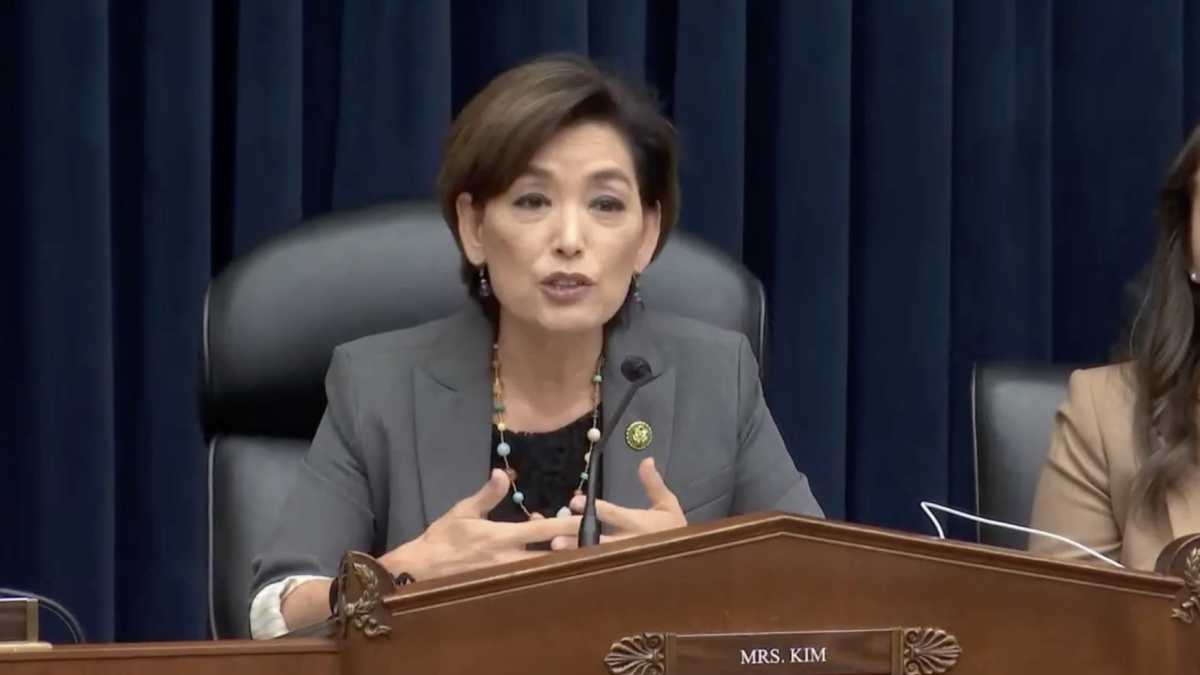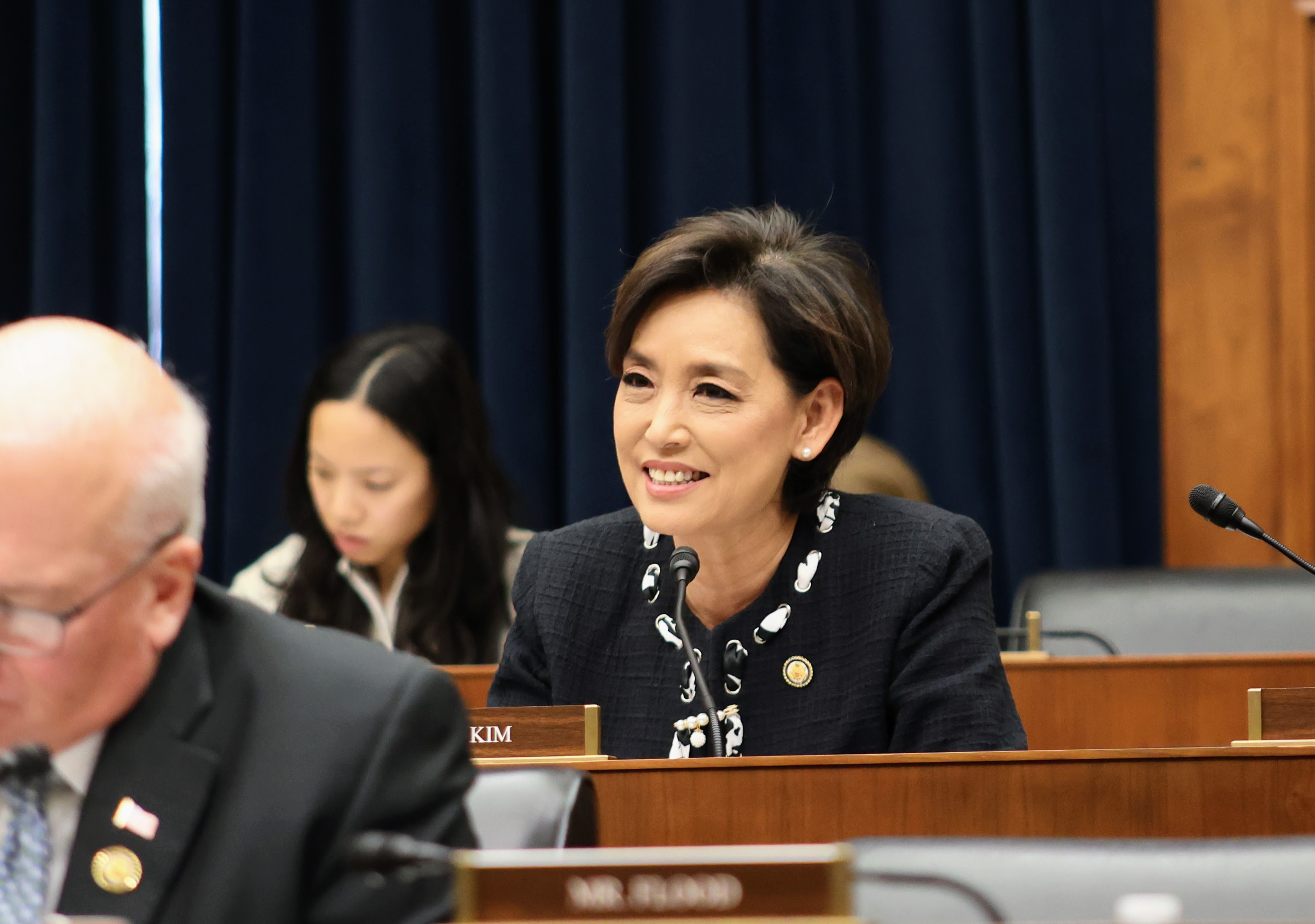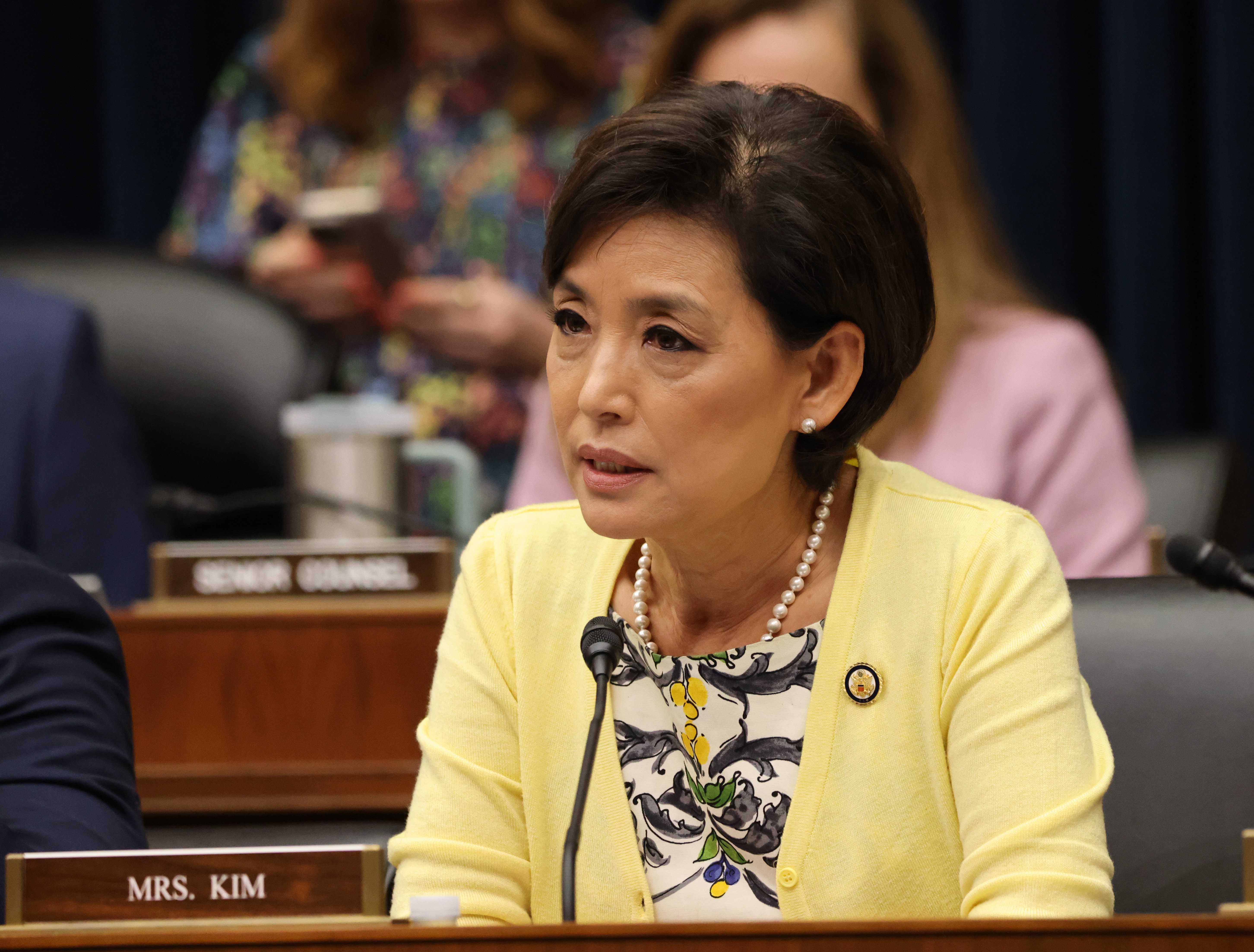Washington, DC – U.S. Representative Young Kim (CA-40), who serves as Vice Chairwoman of the House Financial Services Subcommittee on National Security, Illicit Finance, and International Financial Institutions, questioned witnesses at yesterday’s subcommittee hearing, titled “How America and Its Allies Can Stop Hamas, Hezbollah, and Iran from Evading Sanctions and Financing Terror.”
Watch her questioning HERE or read the conversation below.
Rep. Kim: Iran has made it very clear that its goal is to wipe Israel off the map, and its malign influence campaign and support for terrorist groups like Hamas, Hezbollah in the Middle East, it’s made it very, very clear that they are actually contributing to Iran’s goal of wiping out Israel. For far too long, we have not taken these threats seriously enough. Now Iran is dangerously close to developing an atomic weapon and is more blatantly supporting attacks on the Israeli people. The administration said that the $6 billion in unfrozen funds were only intended for non-sanctioned goods such as food and medicine. We know, of course, that money is fungible, and Iran has ways to launder the proceeds of unfrozen funds. So, Mr. Noronha, how can the Iranian regime elude the monitoring by the Treasury Department to use the unfrozen funds to finance international terrorist groups like Hamas and Hezbollah?
Mr. Noronha: Thank you for the question. One of my greatest concerns is there is no monitoring of unused goods and medicines after they are bought and transmitted into Iran. So, Iran could do two things. They could use those medicines for the IRGC’s military or they could do what they did in 2019, 19 trucks full of medicine were confiscated at the Iraqi border, headed there to be sold on the black market. And who knows what would have been done with those funds.
Rep. Kim: Do you believe we should be thinking about narrowing down the executive authority to waive sanctions on Iran? And if so, how would you narrow that down?
Mr. Noronha: I do think that Congress should put more sanctions as being mandatory, reduce and change the licenses and waiver processes to be required. The affirmative vote of this committee and other committees in Congress, something like arm sales, where if you say we have a really good justification, there is a deal we need to make, we can sell it to Congress, then that’s fine. But it should require the affirmative consent. Not saying you have to go now, pass all these laws to rescind these waivers. I think that puts power back where it belongs in this chamber.
Rep. Kim: According to Bloomberg Report, the Chinese imports of sanctioned Iranian oil are running at the highest level in at least a decade. Other reports say that about 80% of Iranian crude exports go to China. It seems these so-called Chinese teapots, which are small refineries taking Iran’s oil at a discount, are part of the problem. So let me ask you a question, Mr. Brodsky. In your written testimony, you state that Iran has generated approximately $80 billion in revenue from oil sales since the Biden administration took office in 2021. In your view, what can we do to reduce Iranian crude exports going to China? Obviously, our goal here is to stop the Iranian regime from funding international terrorist organizations.
Mr. Brodsky: Yes, it’s a very good question. First, as I mentioned before, given that the Islamic Republic has violated those informal understandings that it reached with the Biden administration and by attacking U.S. forces in Iraq and Syria. Now is the time to really enforce our existing sanctions, especially on the teapot refineries, Chinese banks, Chinese entities. We have not been doing that. I think that if you look at the State Department, they have been saying that we raise the issue of Chinese oil purchases from Iran in our diplomatic conversations. Well, diplomatic conversations are not sanctions enforcement. And this is the same answer that they’ve been giving for a couple of years now. So I think that the time has come for a more aggressive approach.
Rep. Kim: Iran has over $6 billion in reserves held in IMF special drawing rights. The SDRs represent unconditional liquidity. Could you describe some of the risk we face if the government in Tehran were able to convert these holdings into high currency?
Mr. Noronha: If Iran got access to $6.7 billion today, it would not go to the Iranian people. It would go to the regime’s most immediate needs, which is advancing its terror plots. Having access to that currency is gold for them because their terror proxies don’t want Iranian riyal, they don’t want Iraqi dinar, they want dollars and euros. And that’s the fastest way for them to get that is through the special drawing rights. That’s why I think it’s imperative that Congress work with the Treasury Department to make sure that never happens. And that they don’t get the next round of special drawing rights the next time the IMF gives a round.




